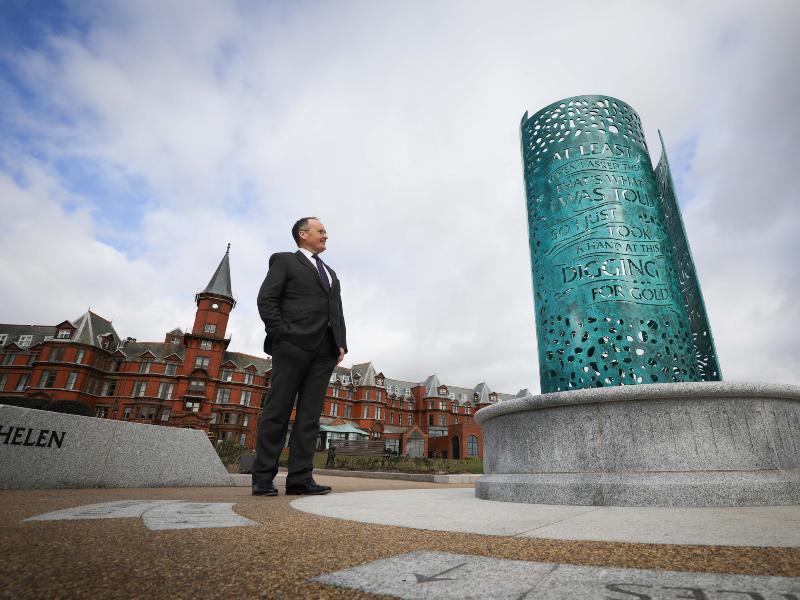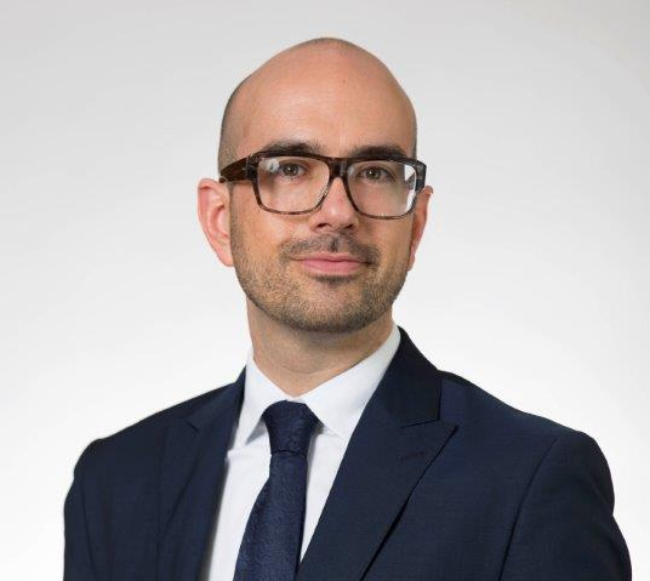With hotels across the island of Ireland scheduled to reopen on 20 July, what will the experience be like and will normality ever return to the sector?
In the Republic of Ireland hotels are scheduled to reopen on 20 July and likewise plans have just been announced that hotels in Northern Ireland will reopen on the same date.
However, nothing will ever be the same again and strict procedures – some of them self-enforced, others in keeping with strict guidelines from the HSE as well as proposed guidelines from Fáilte Ireland in collaboration with the Irish Hotels Federation – will have to be applied.
“The difficulty will be to deliver all of this without making the experience too clinical. No one wants to stay a week away in a hospital ward”
Hoteliers, like all business people impacted by the crisis, are keen to reopen but are also keen to emphasise the steps they are taking.
Health and hygiene at all costs

Pat McCann, CEO, Dalata Group
“As you arrive at your bedroom door, it will have a seal that will break on entering”
In an op-ed in the Hotel & Restaurant Times recently Pat McCann, the CEO of Dalata Hotel Group – one of the biggest hotel chains in Ireland and the UK – gave a picture of how the post-lockdown hotel experience might play out. This includes the use of cleanroom technology, the provision of masks and marking out public areas to ensure social distancing.
McCann said that Dalata’s hotel chain was severely impacted by the lockdown with over 3,500 staff laid off temporarily; one of the most difficult decisions in his 50-year career.
The hotelier said his company used the lockdown period wisely, with staff undertaking various training programmes as well as developing the Dalata Keep Safe Programme with protocols and systems to ensure the safety of guests, suppliers and staff.
Describing the envisioned reopening, he said: “We have introduced thorough systems of sanitisation to ensure, as much as possible, that these areas are safe. You will then have the option of using the lift or staircase to access your bedroom. Strict protocols on lift usage will be displayed on each floor. As you arrive at your bedroom door, it will have a seal that will break on entering. After each room is cleaned thoroughly and key touchpoints are sanitised, we will fog the room with a special device that deals very effectively with viruses and other air and surface contaminants. This device is used in “Clean Room Technology” throughout the pharmaceutical sector and in some hospitals. You will know your room has been treated by the unbroken seal on your door.
“We will have a range of food and beverage options with in-room and main restaurant dining options available. Again, there will be protocols in place that will be explained by our team in our public areas.
“The protocols that apply to you will equally apply to all our employees both front and back of house. Our employee safety and health is “as important as our guest safety.
“There are numerous other initiatives we are undertaking to ensure as much as possible the safety and health of all our guests, employees and suppliers. Like for example, providing plenty of hand sanitisers around each hotel, providing nose and mouth masks to employees and clearly marking public areas to ensure social distancing.
“Above all, we want you as our guest, whether you are on business or leisure to have a relaxed enjoyable stay with us.
“All of our new health and safety protocols will be accredited by Bureau Veritas, a world leader in testing inspection and certification in the Health and Safety area. So, we are doing everything possible to protect the health and safety of all our guests, employees, and suppliers,” said McCann.
The best time to stay?

Howard Hastings at Hastings Hotels’ Slieve Donard Resort and Spa observing the recently erected Percy French memorial.
“We will not see cruise liners in Belfast Lough, and we cannot expect the conferences, concerts and sporting events which generate so many room nights in a normal year”
In Northern Ireland Howard Hastings, managing director of Hastings Hotels warmly welcomed the decision by the Northern Ireland Executive to reopen hotels on 20 July.
“People on the island of Ireland spend £4bn annually on overseas summer holidays and we are delighted to have the opportunity that now exists to persuade them to try somewhere new, at home. The Executive’s decision to reopen hotels on 20 July, announced by Economy Minister Diane Dodds, has unlocked that opportunity. As a result, our enquiry level has already jumped.
“There has never been a better time. There will be no queues at visitor attractions, and the hotels that do open will in all likelihood not open all their bedrooms to comply with regulations.
“Surveys suggest that there are 2.5m people in the Republic of Ireland who have never spent a night in Northern Ireland. We will be working with Tourism Northern Ireland to persuade these people to visit for the first time, and to persuade others to return.
“We are aware that this season will be unlike any other. With so few flights coming to Ireland from the UK and overseas, there will not be the usual influx of visitors on escorted coaches. We will not see cruise liners in Belfast Lough, and we cannot expect the conferences, concerts and sporting events which generate so many room nights in a normal year.”
The near future hotel experience

Gerardo Larios Rizo, head of Hospitality Sector, Business Banking at Bank of Ireland.
“Hotels operators will have to communicate to their customers that their rooms have not only been cleaned but rather thoroughly cleaned and disinfected. Evidence will become very important”
Gerardo Larios Rizo, head of Hospitality Sector, Business Banking at Bank of Ireland, described the likely scenario for hotels and their guests.
He explained that many hotels will implement group-wide protocols like Dalata Keep Safe, Radisson Hotels’ Safety Protocol and Accor’s ALLSAFE label among others.
In terms of lengths of stay Rizo said: “There is some uncertainty about rooms having to remain empty for 24 hours before the next guest checks in so many hotels are requesting a minimum of two or three nights during the first couple of months; longer stays would mean less nights are wasted with empty rooms.”
The check-in experience, he said, is likely to echo the advance check-in facility employed by airlines possibly using kiosks for check-in and enabling room access via smartphone.
In addition, a number of hotels will adjust their room cleaning protocols only cleaning rooms on departure.
One possible approach is having a room disinfected by a staff member prior to it being cleaned in order protect staff, and disinfecting it again after it has been cleaned to protect the customer; a number of automatic disinfection devices are being marketed at the moment.
He said that amenities such as TV remotes, towels, shampoo will be vacuum packed and either handed over at reception or left in the room to guarantee they are Covid-19-free. Spare blankets, bed cushions and kettles will no longer be in the room and will only be available on request.
Other popular experiences of hotel life such as the lavish breakfast buffet and minibar could be a thing of the past and guests and staff will have to endure temperature checkpoints.
All of this presents a different take on the hotel lifestyle customers would have enjoyed in the past and Rizo said hotels will need to be effective in ensuring guests’ concerns about hygiene are put to bed.
In all reopening presents a logistical and marketing challenge for hoteliers. The crucial question: how do you ensure the luxury experience and evocative ambience of the past can be sustained in a post-lockdown future?
“Hotels operators will have to communicate to their customers that their rooms have not only been cleaned but rather thoroughly cleaned and disinfected. Evidence will become very important,” said Rizo.
“The difficulty will be to deliver all of this without making the experience too clinical. No one wants to stay a week away in a hospital ward.”
Written by John Kennedy (john.kennedy3@boi.com)
Published: 3 June, 2020
-
Bank of Ireland is welcoming new customers every day – funding investments, working capital and expansions across multiple sectors. To learn more, click here
-
Listen to the ThinkBusiness Podcast for business insights and inspiration. All episodes are here. You can also listen to the Podcast on:
-
Spotify
-
SoundCloud
-
Apple






